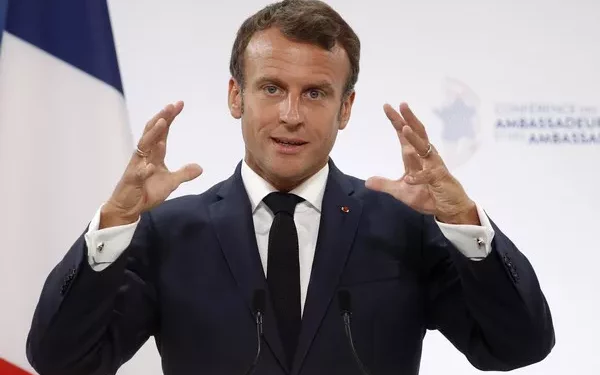The French parliamentary election concluded with a surprising outcome, leaving France in political uncertainty. The New Popular Front (NFP), a left-wing alliance, secured the most seats, effectively blocking Marine Le Pen’s far-right party from gaining significant power. Despite the NFP’s victory, no party achieved an absolute majority, presenting President Emmanuel Macron with a complex parliamentary landscape as he continues his term.
Election Breakdown
In an unexpected turn, the NFP — a coalition of parties including the far-left France Unbowed, moderate Socialists, and Ecologists — garnered 182 seats in the National Assembly. Macron’s centrist Ensemble alliance followed with 163 seats, and the far-right National Rally (RN) led by Marine Le Pen, along with its allies, secured 143 seats. The absolute majority threshold of 289 seats remained unattained by any party.
Implications of the Results
Le Pen’s initial strong performance raised concerns about the possibility of France electing its first far-right government since the Vichy regime of World War II. However, the final results underscored the electorate’s preference to prevent the far right from gaining power, even if it meant a hung parliament.
Reactions to the Election
In Paris, celebrations erupted as the left-wing coalition’s victory became evident. Jean-Luc Mélenchon, leader of France Unbowed, addressed supporters near Stalingrad square, expressing relief over the result. Conversely, Jordan Bardella, the young leader of the far-right RN, lamented the political uncertainty and instability the results brought.
Future Leadership Prospects
Prime Minister Gabriel Attal announced his resignation, leaving the question of his successor open. The results suggest Macron may need to appoint a leader from the left-wing coalition, a rare cohabitation arrangement. However, Macron’s party members have expressed reluctance to cooperate with France Unbowed, equating its extremity with that of the RN.
Macron’s Response
The Elysee released a brief statement indicating Macron would await the final results before making any decisions. Macron’s role as the institution’s guarantor includes respecting the sovereign choice of the French people.
Analyzing the Political Landscape
Édouard Philippe, former prime minister and Macron ally, described the election outcome as creating “great vagueness.” He emphasized the responsibility of central political forces to stabilize the situation without compromise.
International Praise for Election Results
Spanish Prime Minister Pedro Sánchez commended French and British voters for rejecting far-right politics. Sánchez highlighted the alignment with Spain’s decision to oppose the far right, emphasizing progress and social advancement.
Who is the NFP?
The NFP coalition, formed only a month ago, consists of various left-wing parties such as France Unbowed, the Socialist Party, the Ecologists, and the French Communist Party. The alliance’s emergence followed Macron’s call for a snap election.
NFP’s Victory and Policies
With 182 seats, the NFP became the largest bloc but did not secure a majority. Jean-Luc Mélenchon is the coalition’s most notable figure, though the nomination for prime minister remains undecided. The NFP’s policies include raising the minimum wage, capping essential goods’ prices, and reversing Macron’s pension reform. In foreign policy, they advocate for recognizing a Palestinian state and promoting peace in Gaza.
Macron’s Election Gamble
Macron’s decision to call a snap election was a strategic risk that ultimately kept the far right out of power but resulted in a fragmented parliament. The high voter turnout demonstrated the public’s intent to prevent far-right governance.
France’s Divided Parliament
The election left the French parliament divided into three blocs, making coalition formation and effective governance challenging. This division is expected to hinder major domestic reforms, with only ad hoc alliances likely to pass individual legislation.
Public Reaction and Election Aftermath
As news of the NFP’s success spread, Paris saw celebrations and relief among left-wing supporters. However, the RN’s strong showing in the first round had already stirred fears of far-right dominance, which were quelled by the final results. Macron’s centrist Ensemble alliance managed to recover from a dismal first round, securing a substantial number of seats.
Prime Minister’s Resignation and Future Appointments
Gabriel Attal’s resignation as prime minister added to the uncertainty, with Macron potentially needing to appoint a left-wing coalition member. This cohabitation scenario, while rare, underscores the election’s unpredictable outcomes.
Conclusion: France’s Political Uncertainty
The 2024 French parliamentary election results reflect a nation striving to prevent far-right governance while facing political instability. As the new parliament convenes, the challenge will be navigating the divided landscape to ensure effective governance.
You Might Be Interested In:

























